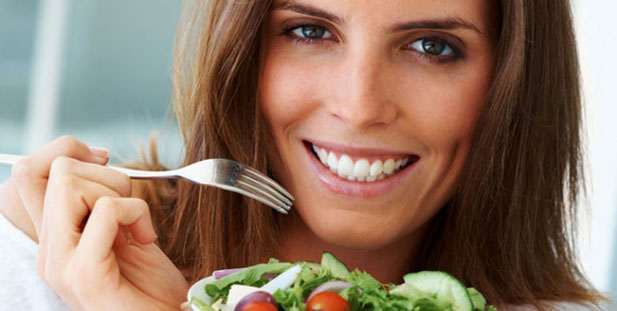Women’s Nutrition

Women’s Nutrition
Women’s nutritional needs vary throughout life, and are affected by menstruation, pregnancy, and breast feeding.
To maintain healthy bones and avoid osteoporosis in the future, women must eat cheese and milk, a wonderful source of calcium, protein and vitamins. Dairy products also help with the formation and regeneration of cells. Regular physical activity is also vital for strong bones.
While breastfeeding, we advise mothers to pay close attention to their nutrition. Breast milk consists of proteins, sugars, fats, vitamins, and salts, i.e. calcium and phosphorus, in addition to water. It is vital that mothers get enough protein, found in foods such as meat, fish, milk, cheese, and eggs. They also need to eat starches, such as rice and pasta, that contain vitamins and iron, as well as lots of fresh fruit and vegetables. Calcium, found in milk and dairy products, is also important. Mothers should also eat dates and drink a lot of fluids, especially water.
For supple, healthy skin, you must drink 8-10 glasses of water a day. Proper hydration improves blood circulation and helps to detoxify the body, which has a direct impact on the clarity and glossiness of the skin. Eat a lot of vegetables and fruits, especially those that contain high amounts of Vitamin C and Vitamin A, which preserve the freshness of the skin. Oranges, melons, broccoli and green peppers can all help with skin health, as do antioxidant rich foods, such as vegetables, nuts and colorful fruits. Antioxidants help combat cancer cells that result from UV exposure. For healthy and beautiful hair, make sure you get enough dairy, as well as fruits and vegetables that contain natural sugar and foods containing zinc, such as red meat and grains, which helps the scalp and renew hair follicles. Vitamin C, found in fruits and vegetables, is important because it maintains healthy skin and hair.


